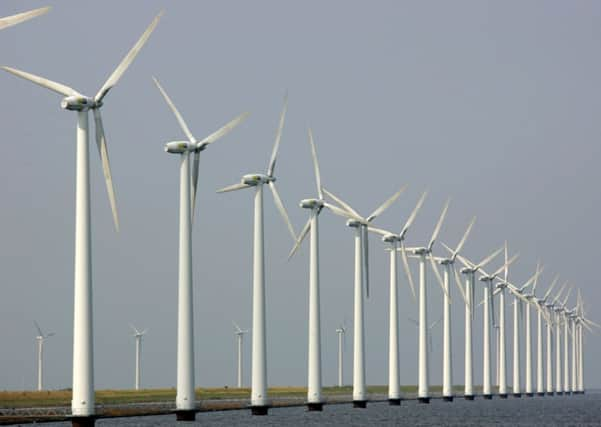Let’s prosper on the winds of change


We have seen remarkable progress, and that is attracting global investment. From two turbines in 2000, there are now over 1,000 operating in UK seas.
In Scotland, 4.8 GW is in planning, enough to power 3.8 million homes. Last year, Samsung came to Fife with their £70 million investment to test the world’s largest turbine, and Statoil is progressing a site off Aberdeenshire that could see Europe’s largest floating wind farm.
Advertisement
Hide AdAdvertisement
Hide AdMaintaining Scotland’s strong position requires, first and foremost, a large-scale collaborative effort with private, public and third sectors working in sync.
With our maritime engineering heritage, we already have the knowledge, expertise and infrastructure to build a success story.
As manager of the seabed, The Crown Estate works to create opportunities for sustainable development. That includes a £100m investment to fund R&D, develop best practice (eg in health and safety), and ensure that Scotland and the UK is an attractive place to invest.
Reducing costs is critical. Test and demonstration sites for floating devices could help achieve that, opening up more challenging areas of seabed. This in turn will attract investment.
Building our understanding of the environment is essential, and a new programme involving UK and Scottish governments, The Crown Estate and industry will carry out strategic research designed to reduce consenting risk.
However, it will not be plain sailing. Some projects will not progress, studies will deem some sites unsuitable, and disruptive technologies could render existing devices and techniques obsolete. That is normal market dynamics.
With Electricity Market Reform now giving clarity over support mechanisms, the sector is moving into a period of consolidation. Developers will focus on the most feasible projects that will provide the best return.
The industry will emerge stronger and smarter – and the environmental, financial and socio-economic benefits of offshore wind will become clear.
• Ronnie Quinn is Energy & Infrastructure lead in Scotland, The Crown Estate
SEE ALSO